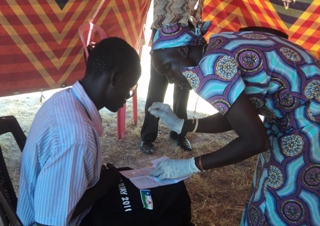HIV drug shortage hits S. Sudan’s Boma state
June 20, 2016 (BOR) – 10 people have died from HIV/Aids infection due to shortage of anti-retroviral drugs in Pochalla North and South counties of South Sudan, an official said.

“HIV and AIDS is the biggest health problem in both Pochalla North and South counties. Many people had been affected. Other people are suffering from Tuberculosis and Malaria”, the commissioner told Sudan Tribune on Monday.
Pochalla, according to 2008 census, had a population of 66, 201, with majority of the people below 45 years of age. With an estimated growth rate of 4.17 percent, the population is currently estimated to have increased to over 84,000.
30% of the population, commissioner Omot said, suffer from HIV infection.
“In the whole Pochalla, 30% of the populations have been affected by HIV/Aids, which is very serious. The disease is rampant among people aged between 18 and above,” he added.
The commissioner specifically blamed the state health ministry, through its departments established in the counties, for allegedly not doing enough to raise awareness on preventive measures such as condom use, among others.
“The health department has not made awareness in the communities on how people can prevent or protect themselves from this disease. People are not aware about how to use condoms. Many people don’t know their status, so they go infecting others without knowing,” said Omot.
“So awareness has not been done,” he further stressed.
According to United Nations data, HIV/Aids infection rate in South Sudan dropped from 3.1 percent in 2010 to 2.7 percent in 2011 as officials stress the need for voluntary testing and counseling testing in the world’s youngest nation.
(ST)
